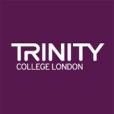Reed Music is pleased to have hundreds of its publications used for popular music exams around the world including: ABRSM, Trinity, AMEB, ANZCA, HSC and VCE.
Please select from the list below to browse works for different syllabuses and grades.
ABRSM – Associated boards of the Royal Schools of Music
 ABRSM is the exam board of the Royal Schools of Music, delivering over 650,000 exams and assessments every year in 93 countries. ABRSM is committed to supporting high-quality music-making, learning and development throughout the world, and to producing the best possible resources for music teachers and students.
ABRSM is the exam board of the Royal Schools of Music, delivering over 650,000 exams and assessments every year in 93 countries. ABRSM is committed to supporting high-quality music-making, learning and development throughout the world, and to producing the best possible resources for music teachers and students.
Trinity College London
Trinity College London is an international exam board that has been providing assessments since 1877. With a rich heritage of academic rigour and a positive, supportive approach to assessment, we provide recognised and respected qualifications in a unique spectrum of communicative skills — from music, drama and arts activities to English language — at all levels. Each year nearly 600,000 candidates in over 60 countries take a Trinity assessment and our international network is growing fast.
AMEB - Australian Music Examinations Board

The AMEB (Australian Music Examinations Board) conducts examinations in music and speech education. Its accreditation is recognised professionally not only within Australia but also overseas, where it is one of the most respected bodies in this field.
AMEB examinations are based on syllabuses designed by leading scholars and performers, regularly updated to ensure that they reflect an appropriate range of performance skills and the latest musicological research. The content of these syllabuses is, wherever practical, published in affordable editions, ensuring that the cost to students of acquiring a full range of the set pieces is as simple and inexpensive as possible.
ANZCA - Australia and New Zealand Cultural Arts
Based on sound educational principles combined with a practical, common sense attitude, ANZCA examinations are offered in Australia, New Zealand, Indonesia, Thailand, Malaysia, Singapore and Hong Kong. Teachers who use our examinations are virtually unanimous in praise of the high standards as well as the friendly, unintimidating environment ANZCA provides.
St. Cecilia Examinations
 The St. Cecilia School of Music was established officially in 1974 in Launceston, Tasmania.
The St. Cecilia School of Music was established officially in 1974 in Launceston, Tasmania.
The expansion of the School’s Examination system (St. Cecilia Examinations) resulted from a need for a more relevant, innovative and exciting approach to assessing the capabilities of music students at all levels. The examination system also offers professional teaching and performing qualifications.
St Cecilia Examinations is now a powerful force in the music world with centres operating in major towns and cities throughout Australia, New Zealand, Asia and Europe.
VCE - Victorian Certificate of Education
 VCE Music offers students opportunities to approach the study of music as a performer, as a creator of music works or arrangements and as a person who studies music works from diverse cultural and historical traditions. Students can specialise in one or more approaches to the study of music, depending on their VCE program overall and the post-VCE pathways they may be interested in following. Through a study of the music of others and experimentation in their own music making, students are able to demonstrate and discuss meaning in music.
VCE Music offers students opportunities to approach the study of music as a performer, as a creator of music works or arrangements and as a person who studies music works from diverse cultural and historical traditions. Students can specialise in one or more approaches to the study of music, depending on their VCE program overall and the post-VCE pathways they may be interested in following. Through a study of the music of others and experimentation in their own music making, students are able to demonstrate and discuss meaning in music.
HSC - High School Certificate
Context: Music of the Last 25 Years (Australian Focus) Topic: Australian Music
 This unit of work is designed for a Music 2 class commencing the HSC course in Music. It will form part of the study of the context Music of the Last 25 Years (Australian Focus).
This unit of work is designed for a Music 2 class commencing the HSC course in Music. It will form part of the study of the context Music of the Last 25 Years (Australian Focus).
The focus of the unit is initially based on the performance of a variety of Australian works selected for the students to perform on their chosen instruments either in small chamber groups or as a soloist. Activities have been provided which use the performance repertoire as a model for a composition task after some analysis of the work has been undertaken. The purpose of this unit is then to expose students to a wide variety of Australian music, which may provide inspiration and influences for the work students do in preparing for the Core Composition component of the Higher School Certificate external examination. The repertoire played, heard and discussed in the unit may also serve as preparation for performance repertoire or submitted musicology essays.


